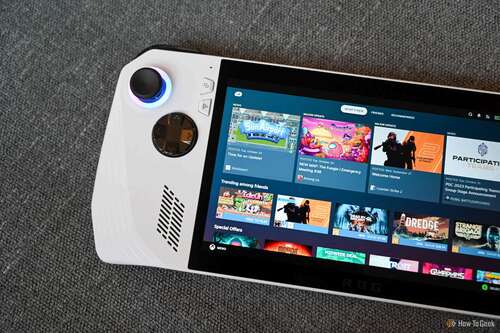
Steam is by far the most popular digital game storefront on the PC. Despite its popularity, there are some features hidden in its depths that you might not know about. Here are seven of the most useful.
Buy DRM-Free Games
DRM (Digital Rights Management) is the bane of many a law-abiding gamer’s existence. While video game pirates can usually defeat this type of copy protection within days of a game’s release and never worry about it again, those who legally purchase games have to deal with issues caused by the implementation of DRM technologies like Denuvo. From online check-ins to crashes and performance problems, DRM can really sour the PC gaming experience.
That doesn’t mean you can’t play games without DRM without breaking the law. For example, GOG (Good Old Games) only sells games without DRM. But what you might not know is that Steam also sells games without DRM. This means that you can make your own copies and back them up, without needing Steam or the internet to play them.
There are a few simple ways to tell if a game has DRM, like checking a game’s store page and trying to run a game without Steam running in the background. For all the ways you can tell which games on Steam are DRM-free, have a look at our guide to DRM-free Steam games.
Launch Non-Steam Games
One common complaint people have against using launcher apps other than Steam is that they hate having to deal with lots of different apps. As a long time PC gamer I can tell you having three or four launchers is way better than each game having its own individual installer, but if having a handful of launchers is still too much for you there’s a solution.
Steam lets you add practically any non-Steam game to your library allowing you to launch it from there. To do this, launch Steam and select the “Games” tab. Now click “Add a Non-Steam game to my Steam Library” and find the executable file. Follow the rest of the prompts to add your game. You can even give it a custom icon so that it doesn’t look out of place.
Stream Non-Steam Games
Steam’s Remote Play feature lets you play the games installed on your PC on a phone, tablet, smart TV, Mac, or handheld PC like the Steam Deck. Most people probably know this, but what you may not know is that you can also stream the aforementioned non-Steam games using Remote Play. Neat.
Share Games With Family Members
By using a feature known as Steam Family Sharing, you can give a number of friends and family access to your Steam library. This is a great feature that many people may not know about, but it does have one major flaw. Even if you and the people you want to share your library with want to play different games, only one person can get access to the Steam library at a time, and the owner always gets preference.
So the other player will get kicked out of their game when you log on. Still, for some people, this is a worthwhile feature to know about, and perhaps one day Valve will let us share games individually.
Local File Transfers
If you have multiple devices all running Steam on your local network, you don’t have to repeatedly re-download those massive game files from the servers. Instead, you can use Local File Transfer to copy Steam files from another local device that has them, as long as it’s logged into Steam and all the correct permissions are activated.
Keep Steam Folders on External Drives
This is a neat trick I discovered when I bought my current MacBook which only had 256GB of storage. Yes, you can in fact play Steam games on a Mac, but like any notebook space can quickly become an issue. An external SSD solves that, but it’s not great when you actually want to use your computer on the go. Luckily, you can remove and replace external drives with your Steam libraries as you need them.
This is also great for handheld PCs like the ROG Ally, which offers an SD card slot. You can have multiple Steam libraries on multiple SD cards and just change them out. Usually this works in a hot-swappable way in my experience, but at worst all you have to do is restart Steam if the games on the external media don’t immediately show.
Nominate your external drives when installing a game, and then make sure that the drive is available the next time you want to play.
Show Your Current Frame Rate
While most people use tools like NVIDIA’s GeForce Experience or RivaTuner to show the FPS counter for their current game, Steam actually has its own counter built in. Enabling Steam’s FPS counter is easy, and I’ve found that it often works in games where other tools refuse to show the number for some reason.
Undoubtedly, Steam has many more little-known features in it, but this is a great start if you want to get more out of everyone’s favorite PC gaming client.

